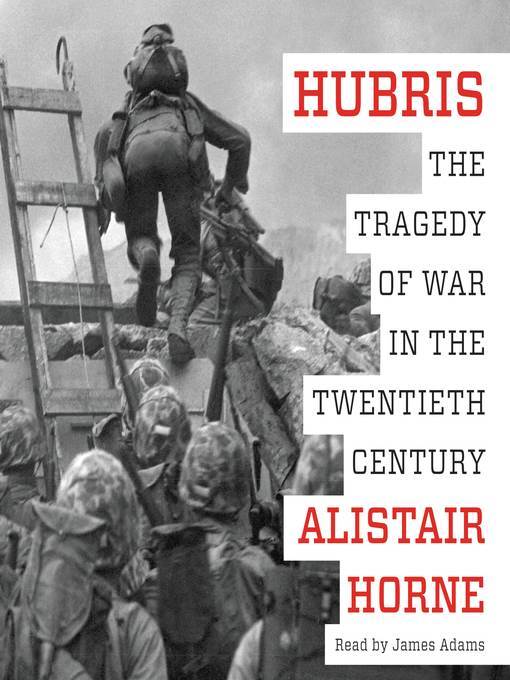
Hubris
The Tragedy of War in the Twentieth Century
کتاب های مرتبط
- اطلاعات
- نقد و بررسی
- دیدگاه کاربران
نقد و بررسی

Any audiobook that opens with the battle history of the 1905 Russo-Japanese War is likely to daunt narrator and listener. James Adams prevails through sheer expertise. He is adept and nimble with dozens of names of generals, battle sites, and battleships. He's never tripped up by the cosmopolitan nuances of a German-born Soviet spy operating out of Tokyo, or by the glottal sloughs of the German siege of Moscow. Alistair Horne's theme of military disaster resulting from hubris is vividly demonstrated in a series of dramatic modern defeats. A history of colossal military blunders is instructive, and fascinating in its own right, but after 12 hours, something of a downer. D.A.W. © AudioFile 2015, Portland, Maine

August 24, 2015
In this well written, deeply researched, and persuasively argued book, Horne (A Savage War of Peace), the venerable British military historian, looks at six critical battles of the 20th century, focusing on what he argues is a constant that links all of them: the hubristic arrogance exhibited by those on the losing end. In military history, the word hubris is most often used to explain one of the primary flaws of American Vietnam War policymakers, but Horne looks across the 50 years that preceded that engagement. He begins in East Asia, examining first the 1905 Battle of Tsushima during the Russo-Japanese War, then moving forward to the obscure, 1939 Battle of Nomonhan— a pre-WWII “border incident” fought by the U.S.S.R. and Japan. Horne then heads to the western U.S.S.R. to address Hitler’s disastrous 1941 attack on Moscow during WWII, before going back to the Pacific to cover the 1942 Battle of Midway. He closes the work with Gen. Douglas MacArthur’s reckless move into North Korea in 1950 and the debacle that ended France’s nine-year war in Indochina at the 1954 Battle of Dien Bien Phu. Horne convincingly argues that “infection by hubris” is alive and well today, and he rounds out the work by discussing ways that 21st-century leaders can work to avoid it.

























دیدگاه کاربران